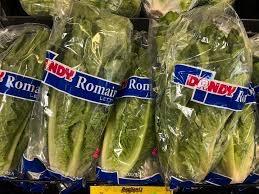 The Food and Drug Administration in cooperation with the Environmental Protection Agency has announced the registration of an antimicrobial additive for irrigation water to reduce or eliminate contamination of green produce. According to the press release, use of the compound is intended to “significantly mitigate risks and improve the safety of the water used in growing crops”. The University of Arizona has assisted the two federal agencies to develop a protocol to test compounds and to establish efficacy.
The Food and Drug Administration in cooperation with the Environmental Protection Agency has announced the registration of an antimicrobial additive for irrigation water to reduce or eliminate contamination of green produce. According to the press release, use of the compound is intended to “significantly mitigate risks and improve the safety of the water used in growing crops”. The University of Arizona has assisted the two federal agencies to develop a protocol to test compounds and to establish efficacy.
 Surely the FDA is looking through the wrong end of the telescope in attempting to mitigate foodborne bacterial infections. Pathogen reduction should not be achieved through treating vast quantities of contaminated water used to irrigate fields. Emphasis should be placed on decontaminating the product during processing and prior to packaging. Treatment of irrigation water appears to be the hit-or-miss approach compared to application of a positive kill step prior to distribution. Whether as a spray, immersion or applying electron beam irradiation, a suitable process would be easier to control at packing and would conform to an HACCP approach to ensuring freedom from foodborne bacterial pathogens.
Surely the FDA is looking through the wrong end of the telescope in attempting to mitigate foodborne bacterial infections. Pathogen reduction should not be achieved through treating vast quantities of contaminated water used to irrigate fields. Emphasis should be placed on decontaminating the product during processing and prior to packaging. Treatment of irrigation water appears to be the hit-or-miss approach compared to application of a positive kill step prior to distribution. Whether as a spray, immersion or applying electron beam irradiation, a suitable process would be easier to control at packing and would conform to an HACCP approach to ensuring freedom from foodborne bacterial pathogens.